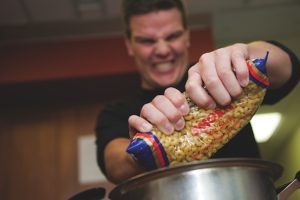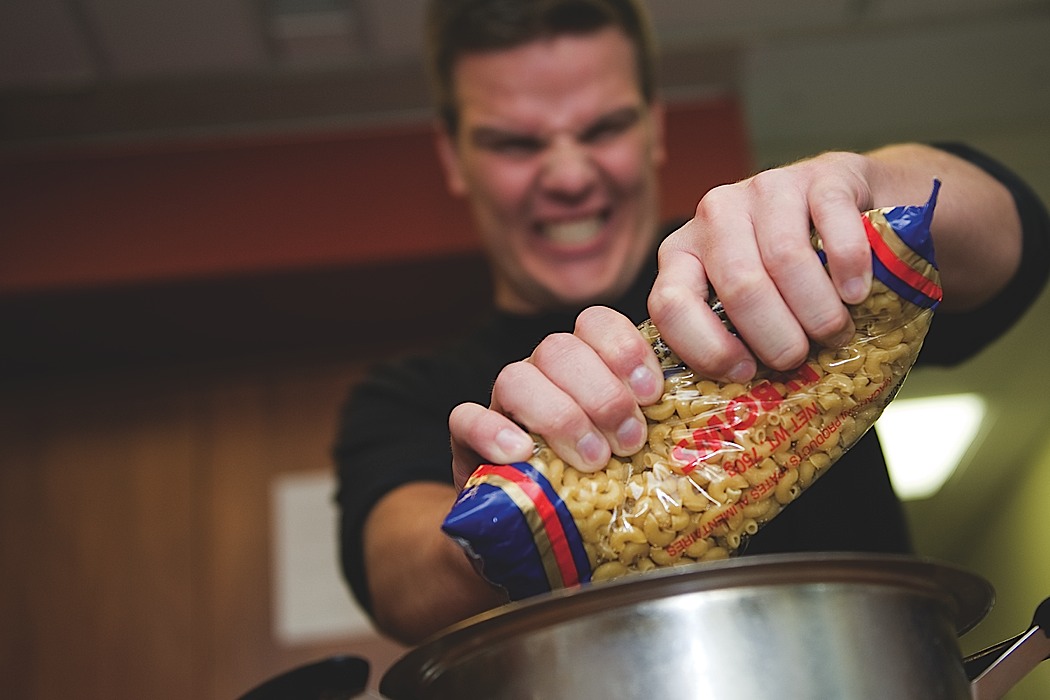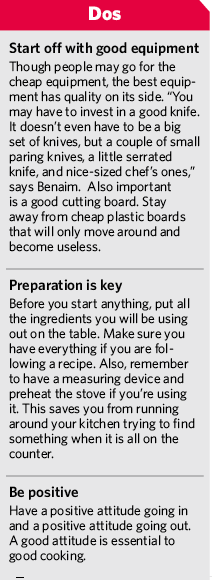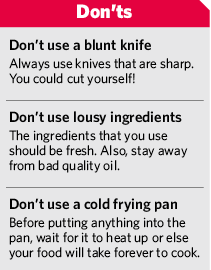Jessica Rizk
Contributor
If you are anything like me, you love the idea of hosting fancy dinner parties for friends: listening to Bocelli while whipping up some fresh tomato and basil bruschetta, and conjuring up a delicious cordon bleu for the main. But, the reality is I couldn’t cook if my life depended on it—and I am certain that there are others who feel just as lost when it comes to navigating through the kitchen.

But Great Cooks CEO Esther Benaim believes that in every person there is a chef just waiting to be found.
Benaim suggests that some of the most practical solutions for beginners who have no cooking experience are taking classes, using cookbooks or even watching cooking shows to start.
“You get a sense of some techniques,” says Benaim. “You learn not only about the equipment and how to use it, but some of the basic things like how to chop an onion or hold a knife and what the difference is between frying and sautéing or braising.”
Though Benaim admits that people may still feel intimidated by cooking even after buying the latest Oprah Magazine Cookbook or taking a few classes with a famous chef, there is always the option of cooking with friends, and even shopping for food at markets with friends. And spending time with your friends at markets, hand picking food is also beneficial to your cooking.
“Looking and being able to touch, feel, and smell the vegetables versus something that is already packaged,” Benaim says, is one of the many benefits to shopping for food.
The expert cook also suggests that trying to cook what you usually enjoy when you eat out at restaurants is a good way to start cooking and making it fun.
“You ask yourself what do I usually go out and eat, and can I make this at home?”
And the sooner we learn to sharpen our culinary skills, the sooner we don’t have to depend on fast food restaurants.
“The problem is fast food is not good for you,” says Benaim. “It is great when you are young and you can eat anything and it doesn’t matter. But eventually it does affect your health. As you get older, you want to live longer. You don’t want troubles with your heart or stomach or whatever. So it is important for our health.”
But learning how to cook is not only the healthier choice, being able to cook your own food means knowing what you’re eating.
“You know what you are getting,” Benaim explains. “You know what is in your food.”
And for those trying to save money for books, classes, and transportation, it is a big advantage over ready-made food.
“I mean, depending on where you go to eat, if you are on a budget you will most likely to go to fast food to eat versus nicer foods in restaurants,” says Benaim. “I think cost is important, and you can make a very nice meal for not a lot of money.”
So if your culinary skills are so poor that you consistently burn mac and cheese, do not be afraid to roll up your sleeves and get messy. For, as Benaim points out, the secret to becoming a great cook is to practice and experiment with different recipes every chance you get.






